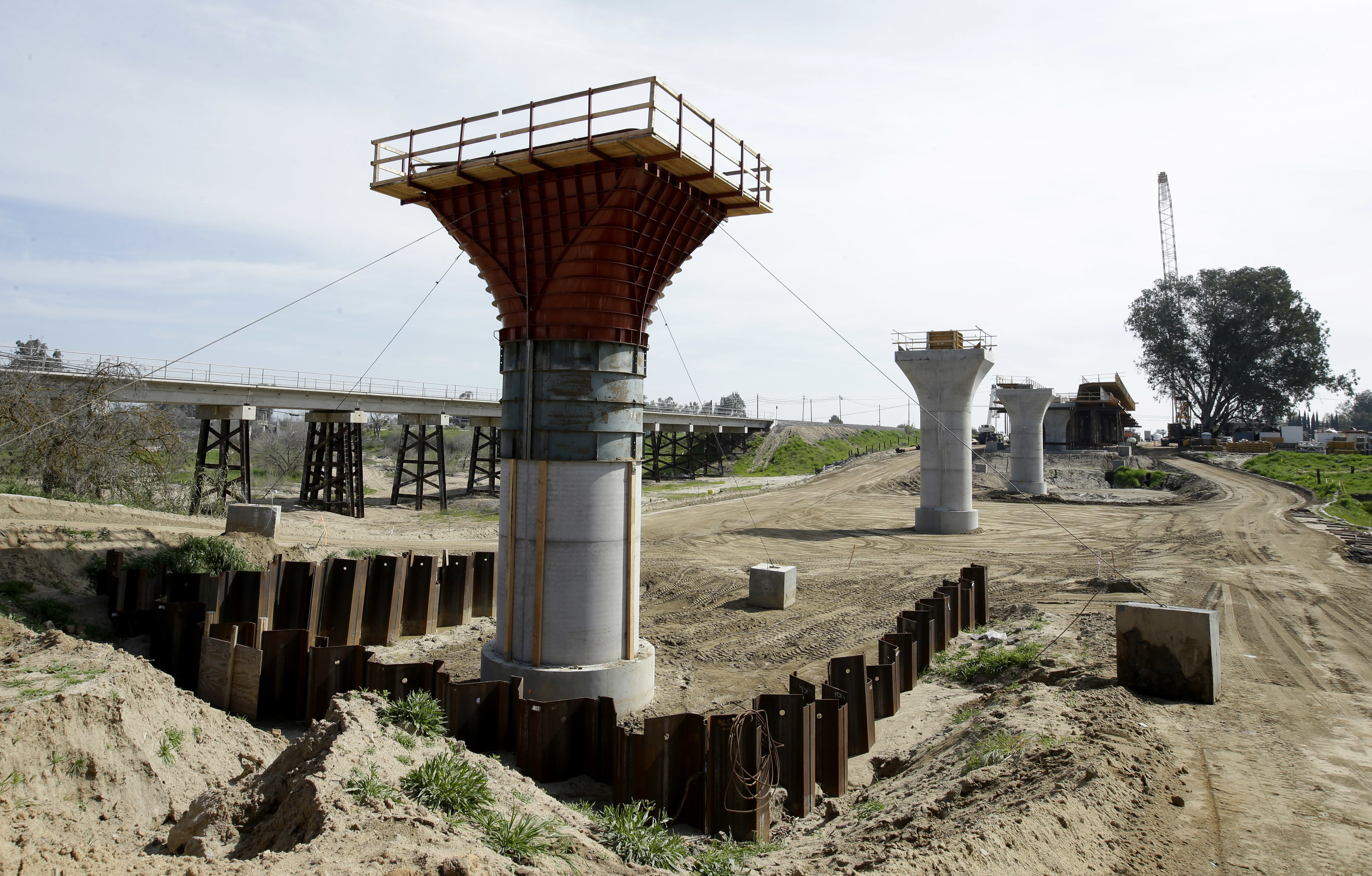In the fall of 2008, as the financial crisis turned a presidential election, California voters approved seed funding for high-speed rail between San Francisco and LA in the form of a bond issue requiring matching federal funds. They did not have long to wait. The following year, now deep in what would prove the most sustained economic failure in national history save one and that one only arguably, the federal government passed a number of stimulus packages including the American Recovery and Reinvestment Act of 2009, near a trillion bucks. An initial eight billion (it would later grow) was set aside for high-speed rail, the great majority of which ended up in California: more than a border wall’s worth. The goals of this funding were to save jobs and create new ones for those displaced by the crisis, to provide infrastructure for future use, to make traveling between California’s two great hubs more pleasant and ecologically sound, and to provide economic stimulus that would restart economic growth in classic Keynesian fashion (that is, the deficit-financed expenditures would put money in pockets that would be spent on goods and services that would as profits of enterprise be spent to employ workers who would in turn spend their pay on goods and services in a virtuous cycle).
So: immediate employment; restored growth leading to future employment; ecological gains. Even not counting the travel advantages (which let’s face it would mostly accrue to the West Coast version of Acela Man, trapped forever in the California uniform of a casual Friday on which the sun never sets), I believe this is what they call a win-win-win. So should politics always be. The whole package was supported at both state and federal levels. It featured amazing projections for both economic and environmental benefits—the two genders, both green. Ten years out, one looks around and notices that there is no sign of the gleaming trains, the gleaming rails, the gleaming anything else.
You are probably saying to yourself, as Democrats do (because we know who reads Popula; we also know what you did last summer), that this was surely the consequence of governmental gridlock, failure of political will, obstructionist opposition, etc. That is because you are not from here. There is no opposition party. In California, we have had a Democratic governor since 2011. Treasurer since 1999, Controller since 1975. Both the state senate and assembly have been all Dem all the time for a generation, consistently by a more than two-to-one majority. United States House representatives since 1997, senators since 1993. It is 2019, we are as blue as a state can be, the need for economic stimulus still hangs heavy, and the climate is in full collapse. Two days before Valentine’s Day, Governor Gavin Newsom cancelled the project. There will be no high-speed rail.
This has provided, particularly for the reactionary press, occasion for a preemptive dance on the grave of the Green New Deal. The analogy—a massive Keynesian infrastructural project in the face of dramatic crisis—is in some regards apt. Analogy, however, only gets you so far, and in the case of said media, that is a trivial distance. This is like that, and that failed! Here is vulgar historicism at its most crass. To such a profound intellect for whom repetition is the only law, everything that happens a first time, or fails to happen for a first time, is a surprise, flitting briefly across the empty thought bubble hanging perpetually overhead. When they are correct about what will or will not occur next it is pure luck.
And yet, a bunch of people I knew, anything but reactionaries—students of economics, economic history, political theory, things like this—knew it was not going to happen, knew it immediately a decade ago, said so, explained why. This knowledge did not arise from some general political skepticism (though it is hard to lay in an oversupply of that substance). It did not arise from the wish to see things go sideways, especially since a lot of us thought that a fast train SF–LA would be cool. It did not arise from vulgar historicism. It arose from a specific analysis of the circumstances that we had inherited, one that offers an account of underlying cause and effect as they work within the world in which we live (an account I am contractually obligated to simplify).
This is not a story about the fact that they knew. It is not a story about the political machinations of the decade. It is almost entirely a story about the fact that this outcome was entirely knowable. That is to say, it is a story about the conditions in which we make political decisions, not in the dark, not out of optimism, but from an understanding of the real constraints on a situation. The new is possible; when the old happens it is not because there is some vague principle of historical repetition. Let that be our double-watchword. We make our own history, but we do not do so under conditions of our choosing; they are conditions already existing, given and transmitted from the past. And it is in this context that we can reflect on the Green New Deal—but that is for Part II.
Joshua Clover






